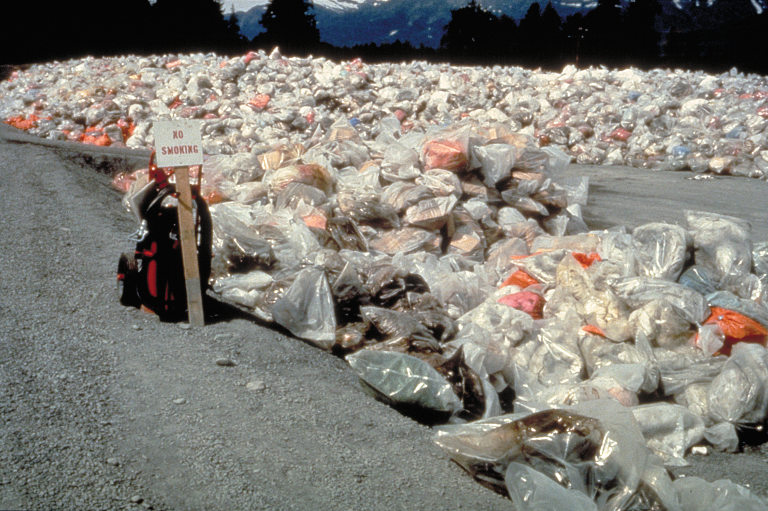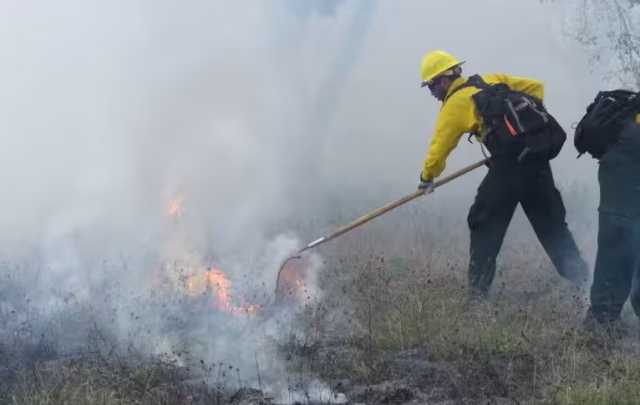Just as genocide has become the norm in international law, it is time to make war on nature a prosecutable crime also.
At the end of last year while the world was focused on the Corona virus a panel of experts in international law met to draw up a recognised legal definition of ecocide, which in the long term will prove to be infinitely more harmful to human civilisation than the Corona virus.
Ecocide, broadly defined, means the deliberate destruction of nature and global ecosystems by human activity – climate breakdown and the damage it has already done, and will cause in the future, being the most obvious example.
The panel’s aim is to make the deliberate destruction of the natural world a legally enforceable crime, and ultimately add ecocide to the other four already existing international offences in international criminal law: genocide, war crimes, crimes of aggression, and crimes against humanity.
For years ecocide has been regarded by some as too abstract, and potentially unenforceable. But as the evidence mounts up around us – witness the record breaking Australian and California bush fires last year, and the even more incredible record breaking high of 38C in Siberia last summer – making ecocide a crime begins to make more sense, both legally and morally.
Just as importantly, in the long run it will make good economic sense, because without a liveable and healthy biosphere – the region of the earth where all life exists, from the bottom of the oceans to where the atmosphere meets space – economic and social life will struggle to exist in ways we have known in the past. For many this is already a lived reality.
Ending Impunity
Humans need a healthy planet to meet our most basic needs – food, shelter, water and oxygen, and so too do our fellow species. In the last forty years there has been a 58% decline in global wildlife due to our ongoing destructive mismanagement of the biosphere. Animals living in the world’s lakes, rivers, and freshwater systems have experienced the most dramatic population declines, at 81 percent. Even the most ideologically myopic amongst us must now realise we can’t continue this way.
In 2015, a group of scientists and researchers undertook an assessment of all the key environmental threats to the sustainability of the earth’s ecosystem. They identified nine planetary boundaries. They concluded that two of these ‘core’ boundaries, climate breakdown and biodiversity loss, have already been overshot. In short, we are accelerating outside of nature’s limits.
The study’s lead scientist said that once we pass a certain threshold even reducing greenhouse gas emissions and biodiversity loss may not reverse or even slow the trends of earth’s degradation, which could have potentially catastrophic consequences. What this means is that ecocide is not some abstract academic notion but is already in fact a reality at the global scale.
The idea of ecocide is gaining traction and momentum amongst policy makers, academics, climate activists and global civil society too. In January of this year, the European Parliament’s environmental Committee called, “…on the Commission and member states to raise awareness and promote solutions on the protection of environmental rights and the recognition of ecocide in international law”.
For the first time in its history, a European parliament committee is now addressing recognition of ecocide in EU law. A small step for sure, but a significant one.
Last year, 150 members of the French citizens’ assembly, a group of people randomly selected to guide the country’s climate policy, voted to make ecocide a crime. President Macron addressed the assembly and said: “The mother of all battles is international: to ensure that this term is enshrined in international law so that leaders… are accountable before the International Criminal Court.”
Of equal importance, the UK’s Supreme Court ruled recently that a group of citizens from Nigeria who suffered from ill-health caused by pollution can now sue Royal Dutch Shell in the English courts. Although this is a civil ruling and not criminal, it adds to the ongoing momentum of legal accountability for polluters and furthers strengthens and popularises the concept of ecocide in the courts.
If we are serious about protecting the global environment, which in reality means protecting ourselves and our children and their grandchildren, making ecocide a crime alongside genocide and crimes against humanity is the next logical and ethical step. This is why it is necessary to adopt ecocide as the 5th international crime, and so to make it prosecutable.
International criminal law is not just about holding perpetrators accountable for crimes committed in the past, it is also about setting up rules and constraints and creating norms which will, hopefully, prevent others from committing further similar crimes in the future. It is also about shaping the future behaviour of states, and large multinational companies.
Protecting Nature
After all, international law has been used to protect the rights of investors overseas and to protect intellectual property rights too. Surely now is the time to create serious and binding global rules to protect the planet itself, and all living entities in it, and humanity’s future.
A key principle in international criminal law is that of responsibility for acts committed with knowledge of the likely consequences. So far the damage done to the global environment (the biosphere and atmosphere) has been treated as an unfortunate and external by-product of pollution, greenhouse gases for example.
We have known for at least thirty years of the foreseeable damage caused by dumping carbon in the atmosphere, the argument that certain actors couldn’t foresee the consequences no longer holds.
Ecocide Justice
Essentially, a crime has been committed against the natural world, and yet no criminals can be found anywhere. If Ecocide was recognised as an offence this would change. States and companies would be held criminally liable for environmental destruction as a result of harmful policies and practices. Ecocide would go a long way to finally ending impunity for the worst offenders.
In 1998, the global community finally made crimes against humanity an international offence and defined it as acts, “committed as part of a widespread or systematic attack directed against any civilian population”.
Some saw the definition as too narrow and suggested that “any inhumane acts instigated or directed by governments or by any organisation or group” as more appropriate. It is now time to place crimes against the living planet on a similar footing. Doing so would create links between international criminal law and international environmental law and expand the right to a healthy environment, and in doing so would strengthen both for the coming challenges of the 21st century.
After all, international law is way too important to be left to lawyers, politicians and academics.
Environmental crimes related to increasing biodiversity loss and accelerating climate breakdown now increasingly threaten the peace, security and well-being of the world, to quote the international criminal court’s statute, in ways we dare not yet imagine.
Until Ecocide is officially seen as a crime, and recognised and granted the full weight of international law, we are only left with aspirations and empty rhetoric. These crimes have on the whole gone unpunished in the past but for all our sakes, and for the sake of future generations, they must be held accountable in the future.
Teaser photo credit: By Unknown author – http://photos.orr.noaa.gov/gallery_4/incidents-21.htm, Public Domain, https://commons.wikimedia.org/w/index.php?curid=39400519





